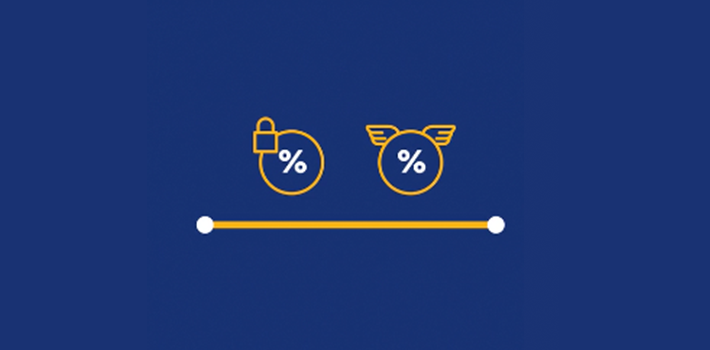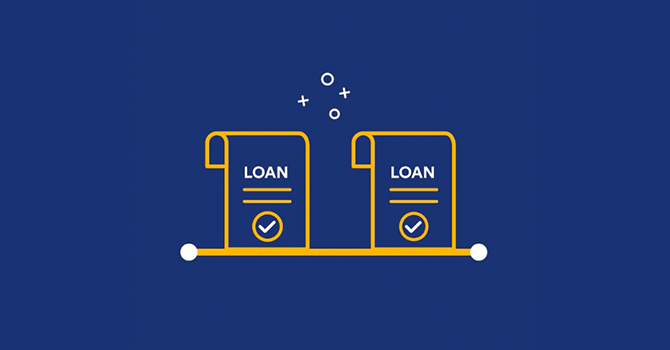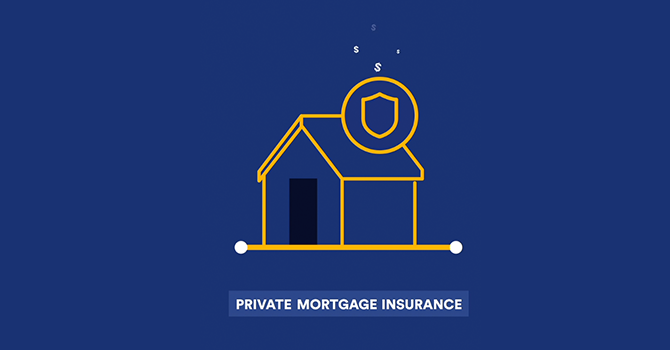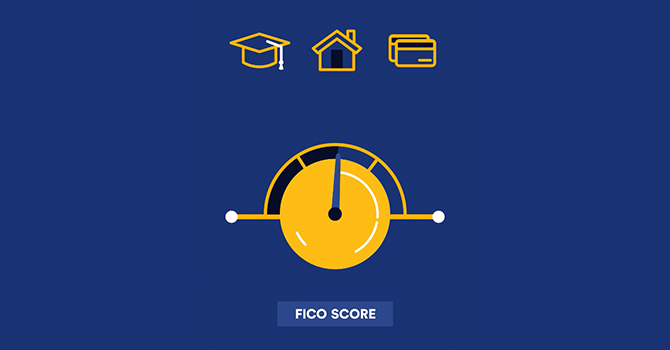Before you take out any type of loan, it’s important to understand the difference between fixed and variable interest rates. With a fixed rate loan, the interest rate stays the same throughout the term, which can help with budgeting and planning. With a variable rate loan, the interest rate changes periodically to reflect current market conditions, which can save money in certain economic settings. Read on to learn more and decide which one is best for your circumstances.
What’s the difference between a fixed and variable-rate loan? With a fixed-rate loan, the interest rate (and in turn: your monthly payment) stays the same over the life of the loan, which can help borrowers budget for repayment. You might pay a premium for this predictability, but good credit could help you secure a low rate.
With a variable-rate loan, the interest rate changes periodically to reflect current market conditions. Typically, there’ll be a cap and a floor that limit how high the interest rate you’ll pay can rise or fall. But if market rates rise, your rate, and therefore loan payment, will increase. If rates fall, you’ll pay less.
Some borrowers prefer the stability of a fixed rate, while others don’t mind risking a rate hike given the potential to save money should rates stay low, or drop.
Common fixed vs. variable rate loans
Many financial institutions offer both fixed and variable interest rates. However, each type of interest rate is more common for certain types of loans. Understanding which types of loans typically have fixed or variable interest rates could help you make informed financial decisions.
Common fixed loans include:
- Installment loans (including personal loans)
- Student loans
- Auto loans
- Fixed-rate mortgages
Common variable loans include:
- Credit cards
- Lines of credit
- Adjustable-rate mortgages
Fixed rate pros and cons
Fixed interest rates may offer borrowers some stability, but borrowers could miss out on savings. Here are some advantages and disadvantages of choosing a fixed rate:
Pros
- Monthly payments are predictable, so borrowers can easily budget for debt repayment without worrying about surprises.
- Borrowers may be able to determine their own terms based on their goals and financial circumstances.
- Interest rates don’t increase when market rates go up.
Cons
- If market changes result in lower interest rates, borrowers with fixed loans don’t benefit.
- Borrowers can’t usually change a fixed interest rate without refinancing or incurring fees.
- Depending on market conditions, borrowers may spend more over time than they would with a variable loan.
Variable rate pros and cons
Variable rate loans offer more flexibility than fixed rate loans, but they come with some uncertainty.
Pros
- Variable rate loans may cost borrowers less per month, depending on market conditions.
- Sometimes, variable rate loans come with low-interest rate introductory offers for the beginning of a loan’s term.
- Borrowers may owe less total interest over the lifetime of a variable rate loan than one with a fixed rate.
Cons
- Budgeting for variable rate loans is often difficult, as monthly payments aren’t always predictable.
- Changing market conditions could mean higher payments.
- Borrowers may risk defaulting on a loan if rates change drastically.
Deciding which rate type is right for you
To choose between a fixed rate and a variable rate, consider current market conditions, your financial circumstances, the loan type, and your capacity for risk.
A fixed interest rate may be the better choice if you value stability or need a consistent budget. However, if you have the flexibility to handle some risk, a variable interest rate may ultimately save you more money – but there’s no guarantee.
Before agreeing to a loan with variable interest, make sure you have reliable income or enough savings to handle potential payment increases. Variable interest rates may be low initially but have the potential to go up over time.
Term length may influence your decision as well. With a shorter term, a variable interest rate might not have as much of a chance to increase sharply, so there’s less risk. A fixed interest rate offers more stability for a longer-term loan, because future market conditions may be difficult to predict. A fixed-rate loan could protect your finances if average interest rates skyrocket.
Finally, consider the state of the market before choosing between a variable or fixed interest rate. During periods with relatively low interest rates, it makes sense to lock in a fixed rate and protect yourself from future increases. However, if interest rates are likely to fall in the coming years, a loan with a variable rate could allow you to reap the benefits.
When to make a change
If an interest rate no longer works for you, you may have options. Many lenders offer lower initial variable rates than fixed rates. However, if market changes push variable rates high above fixed rates, making the switch could stop your monthly payments from increasing drastically. You may also want to change to a fixed rate if your financial conditions change and you won’t be able to manage future increases in payments.
Some lenders may allow you to switch from a variable to a fixed rate online or over the phone. Your new interest rate typically depends on your remaining balance and term length. That means if you’re five years into a fifteen-year term, your new fixed interest rate would be based on a ten-year term.
Refinancing your loan may also allow you to secure a new interest rate. Some loans, like mortgages, charge a prepayment fee for breaking your contract and refinancing. You may also incur other administrative fees. However, the money you save in the long run could offset the cost.
Fixed vs. variable: it’s in the details
No matter what type of loan you’re interested in, you should take the time to understand how a fixed or variable interest rate may affect your initial payments and expenses over the loan’s term. What makes sense for one situation and type of loan may not make sense for another. Conduct research with care and speak to your lender about your options.



